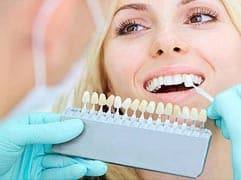Call (515) 277-6358 to schedule your consultation!
Treatments for Gum Disease
Are your gums starting to get red and puffy? Do they bleed when you brush and/or floss? If so, you may be suffering from periodontal disease.
Understanding Gum Disease
Gum disease—also known as periodontal disease—is simply inflammation in the gum line caused by a buildup of plaque. There three main stages of gum disease, which include:
- Gingivitis
- Periodontitis
- Advanced Periodontitis
The earlier periodontal disease is caught, the less chances there will be of irreparable damage. Gingivitis, for instance, is easily reversed. Periodontitis is where real damage is done to the gums, teeth and jaw bone. Once it gets to the point of advanced periodontitis, you can expect massive damage that can be difficult—if not impossible—to reverse. This is why it’s important to handle gum disease while it is still in its early stages.
Gum Disease Treatment: Scaling and Root Planing
Scaling and root planing—also known as a deep cleaning—is a common procedure for the treatment of gum disease. It is a simple procedure that your dentist should be able to perform in one visit.
The scaling process of the procedure involves the plaque, tartar and debris being removed from under the gum line. This is done with specialized tools, like an ultrasonic cleaner or a small scaler. From there, the surface of the tooth’s root is smoothed. This is the planing process. This helps with the healing of the gum tissue, as well as the prevention of plaque accumulation after the procedure.
Gum Disease Treatment: Surgery
If periodontal disease is more severe, surgery may be necessary to prevent tooth loss. This surgery may require the assistance of a specialist. Surgery will help the dentist to clear away harder to reach areas in which plaque and tartar have built up. In some cases, a soft tissue graft may be needed to repair lost gum tissue.
Gum Disease Treatment: Regular Care
One of the best ways to treat gum disease is to prevent it from occurring in the first place. By scheduling regular trips to the dentist every six months, you can avoid the buildup of plaque and tartar. This will help to put a halt to the plaque and tartar spreading below the gum line. Even with regular visits to the dentist, though, you still may have the risk of developing gum disease if you aren’t properly caring for your teeth at home. It isn’t the responsibility of your dentist to keep your teeth clean between visits! Instead, you’ll want to make sure that you are brushing, flossing and rinsing at least twice a day.
It’s also important to schedule an appointment between visits if you notice any inflammation, redness or any other issues with your teeth or gums. Remember: the earlier you handle any tooth decay or gum disease, the better chances you have of only needing a minor procedure for repair. The longer you allow the issue to persist, the worse it will get! Schedule an appointment with your dentist for gum disease treatment if your gums are showing any signs of gum disease.
Iowa Dental Groups offers periodontal therapy and treatments. Contact us today to find out more.
Interested in learning more about Gum Disease? Here's a little more about what it is exactly.
Actual Patient Reviews
We have so many terrific reviews it's impossible for us to list them all! Thanks for supporting Iowa Dental Group with your gratitude.
Dental Office Location
Iowa Dental Group prides ourselves in offering the highest quality dentistry at a fair and reasonable fee.
Des Moines, Ia 50311
(515) 277-6358
iowadentalgroup@hotmail.com
https://www.iowadentalgroup.com
Iowa Dental Group Contact Form
Our Des Moines' Dentists Bob Margeas DDS & Nicholas Economos are eager to help provide any answers you may have. Contact us today regarding optimal oral health.
Dentist Office Hours
Our Dentists look forward to answering any dentistry related questions or dental concerns you may have regarding your overall oral health and smile.
Office Hours
| Monday: | 7:30am - 5:00pm |
| Tuesday: | 7:30am - 5:00pm |
| Wednesday: | 7:30am - 5:00pm |
| Thursday: | 7:30am - 5:00pm |
| Friday: | Closed |
| Saturday: | Closed |
| Sunday: | Closed |
















